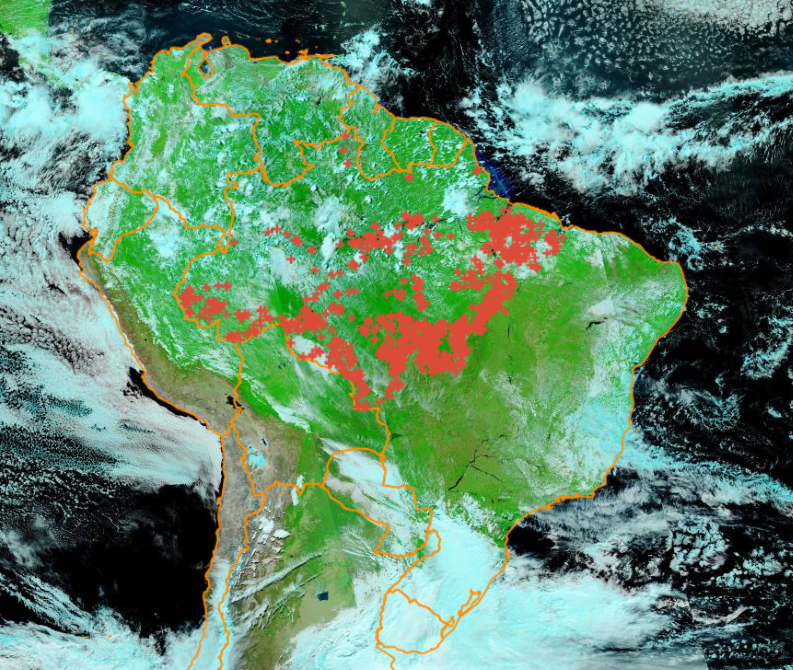The Amazon rainforest, which covers over 60% of Brazil, plays a crucial role in mitigating climate change. Its trees absorb large quantities of greenhouse gases, including carbon dioxide. It helps to regulate global temperatures.
However, the rapid deforestation and degradation of the Amazon due to illegal logging, mining, and agriculture practices, have contributed significantly to global carbon emissions.
Climate envoy John Kerry emphasized the importance of protecting the Amazon rainforest to achieve the global climate goal of limiting the rise in temperature to 1.5 degrees Celsius.
The importance of Amazon rainforest conservation in climate change mitigation
The Amazon rainforest is considered the lungs of the earth as it produces 20% of the world’s oxygen. Its trees also store carbon. It helps regulate the Earth’s climate.
According to the United Nations, deforestation, and forest degradation account for around 10% of global greenhouse gas emissions.
Also, the Amazon rainforest is home to over 30 million people, including many indigenous communities, who rely on the forest for their livelihoods.
Protecting the Amazon rainforest is, therefore, essential not only for mitigating climate change but also for preserving the biodiversity of the region and the cultural heritage of its inhabitants.
The shift in Brazil-U.S. relations on climate change and deforestation
Under the previous Brazilian administration of Jair Bolsonaro, relations between Brazil and the United States on climate change and deforestation were rocky. Bolsonaro rolled back environmental protections and encouraged deforestation in the region. Deforestation in the Amazon reached a 15-year high during his administration.
However, since the inauguration of Brazil’s new President Luiz Inacio Lula da Silva he pledged to work with the United States to address these issues. In a meeting with U.S. President Biden earlier this month, both leaders committed to cooperating on climate change.
This marks a significant change in direction for Brazil, and the United States is now exploring ways to support Brazil’s efforts to protect the rainforest.
The U.S. funding proposal for Amazon conservation
During his visit to Brazil, John Kerry discussed the possibility of the United States contributing to the Amazon Fund. The Fund supports conservation projects in the Amazon region.
Kerry emphasized that protecting the Amazon is critical to achieving the global climate goal of limiting the rise in temperature to 1.5 degrees Celsius.
The United States is currently considering how much to donate to the Amazon Fund. Kerry mentioned that the Senate is looking at a bill that includes $4.5 billion in funding for forest conservation, while the House of Representatives is considering a proposal with $9 billion.
However, Kerry acknowledged that there may be opposition to these proposals in Congress.
Restarting the Brazil-U.S. working group on climate and environment
Kerry and Brazil’s Environment Minister Marina Silva also discussed restarting the bilateral working group established in 2015. The working group should continue the discussion on cooperation on climate and environmental issues.
The working group had stalled under the previous administration but could play a crucial role in facilitating collaboration between Brazil and the United States on climate change and deforestation. Silva also raised the possibility of the United States opening up to more sustainably sourced products from Brazil, which could help support sustainable practices in the Amazon region.
Amazon rainforest is vital on so many levels
Protecting the Amazon rainforest is vital to achieving global climate goals and preserving the biodiversity and cultural heritage of the region. Brazil’s new administration has signaled a willingness to cooperate with the United States on climate change and deforestation, and the United States is exploring ways to support Brazil’s efforts to protect the Amazon.
Restarting the bilateral working group could facilitate collaboration between the two countries on climate and environmental issues, and the United States opening up to more sustainably sourced products from Brazil could also help support sustainable practices in the Amazon region.
Protecting the Amazon rainforest is a global challenge, and it will require the cooperation and commitment of all countries to address it effectively.

